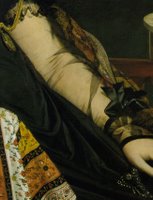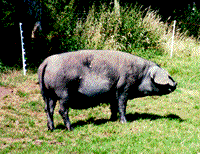I’m off to the 2012 Love of Writing Conference today so I must count pairs of underwear and remember to pack my toothbrush. Having turned my office inside out and upside down I found one of the many cables I own that enable a mac to talk to a projector, so that’s one big relief. Whew.
So here’s an excerpt from Dedication on sale now! Now! for Kindle, Nook, and at LooseId. When I first wrote the book nearly everyone commented that there was a hole at the end. So there was. The hero Adam is challenged to a duel by the heroine’s brother, because, tsk tsk, she’s pregnant. So naturally after the duel he has to do the honorable thing…
The next morning Fabienne sat at her writing desk, a tisane at her elbow. She could not stomach coffee, formerly one of the great sensual pleasures of her life, and regarded both the blank page and the cooling cup of herbal tea with distaste. She sharpened her pen again to delay writing. Her mind was dull and sleepy. Even so simple a task as writing to a friend to borrow half a dozen footmen for her salon seemed beyond her. So she had sat, indecisive and nervous, searching for words, the first time she had written to Mrs. Ravenwood.
Mrs. Ravenwood. She grimaced. What a train of events she had set in motion.
The sound of an opening door and male voices came from downstairs—Ippolite, her footman, and another voice that despite her anger and resentment caused a familiar sizzle of excitement.
She laid her hand on her belly. “Your papa is here, and for your sake, I shall remain calm.”
Sure enough, her footman scratched at the door. “Mr. Ashworth, ma’am.”
Before she could speak, Adam had pushed past him, opening the door. She noticed that his hat and gloves were in the footman’s hands, suggesting that Adam’s visit was to be of some duration, before the door was firmly closed in the servant’s face.
“I trust I’m not interrupting you,” he said. “I’ve come to discuss our wedding.”
“Our wedding?”
“Yes.” He wandered over to her desk and drummed his fingers on the wooden surface. She could feel his warmth as he leaned against her chair. “To whom are you writing?”
“It is none of your business.”
“If there’s nothing written, it can be no one’s business, unless you use an invisible ink. I wonder that I ask, but I’m not myself. I lost a fair amount of blood yesterday, and my sister and daughter drive me mad fussing over me.”
“Sit down, Adam, and tell me what you want.”
“Very well.” He sat and reached into his coat, clumsily, for he used his left hand, and she wondered, with a pang of sympathy, if his injury pained him. He handed her a document. “I had this drawn up. It states that I make no claim on your fortune when we marry, for you are a French citizen and subject to French law, under which a married woman controls her money.”
“When we marry? Should that not be if we marry?” She laid the document aside. “A fine gesture, Adam, but I doubt it would stand up in court.”
He glared at her. “Then you shall have to trust my word in the matter of your finances. As unpleasant a prospect as it may be, yes, Fabienne, you shall marry me, by God. It is a question of honor. My honor. I am damned if our child shall be born without my name, and I let your brother skewer me like a stuck pig yesterday for that reason. My ballocks ache still from his defense of the Argonac family name. Pray do not argue. We marry, and that’s an end to it.” He flung another document onto her lap.
“A special license,” she said.
“This afternoon.”
“What?”
“I’m in a hurry. Surely you don’t need more than a couple of hours to get ready. Put a bonnet on and we’ll be on our way. Ippolite will stand as witness. I gather you no longer adhere to the Catholic faith? Good.”
“I’m not even dressed!”
“Beg your pardon, ma’am. I can’t always tell with ladies’ fashions as they are.” He leaned back, stretched out his legs, and crossed his feet at the ankles. He gave her an appreciative, masculine look, gaze sliding from her casually tied-back hair—she had washed it that morning, and it fell in drying tendrils around her face—to her loose gown and embroidered Indian slippers.
“Oh, you…” she said, torn between a sudden fierce urge to fling herself onto his lap or to rail at his officiousness.
“I love you,” he said. “I have reason to believe you love me too. Come, Fabienne, it’s the right thing to do. Don’t fight me.” He reached for her hand and rubbed his thumb over her knuckles. “You have nothing to fear from me.”
“I can’t possibly go to the country. I have my salon next week.” But she let her hand lie under his.
“Of course. You’ll come to my house later. Whenever you wish.”
“I’m not sure I wish to live with you,” she said, as much to provoke him as anything else.
“I should be most happy to provide conjugal visits at your pleasure, but wouldn’t you prefer to lie-in in the country? It’s far healthier, and we have an excellent doctor nearby.”
“So I tell her, Mr. Ashworth.” Susan bumped the door open with her hip. She laid a tray of tea things on the low table in the room. “I don’t hold with cows and so on, but I’ll go to the country if I must. Mr. Argonac says you’re to drink tea, Mr. Ashworth, and keep your strength up. Anything more, ma’am?”
Fabienne shook her head, and Susan left. “I am surrounded by conspirators.”
“Conspirators who love you.” Another amorous glance, lingering on her breasts.
She frowned and wrapped her shawl more closely around herself.
“You’re looking very well,” Adam continued as he poured tea. “Do you quicken yet?”
“No,” she lied.
“Mags was a glory when she was pregnant. Like a lovely ripe plum. And amorous. Good heavens, she was insatiable.” He smiled fondly. “Asleep over her sewing half the afternoon and a raging succubus after dinner.”
“How charming. I feel no amorous urges at all,” Fabienne said, very aware of the slow stroke of his thumb on her knuckles. “Besides, my doctor advises me that such activities are injurious to the child.”
He blinked at that barefaced lie—she had not yet even consulted a physician—and laughed aloud. “More fool him.”
She attempted to move her hand from beneath his and succeeded only in drawing his hand closer to her belly where the child fluttered and quivered deep inside her. She was fairly sure he could not feel anything through her dressing gown and shift, but he gave a slow smile as their hands came to rest in the warmth of her lap.
“No amorous urges?”
“None.”
He leaned forward and kissed her forehead, where a drying curl escaped the ribbon she had tied around her hair. “You’re very beautiful. You looked tired before, but now your hair is delicious—is that sandalwood?—and your skin glows.”
“I feel well enough.”
His lips brushed hers, lingered at the corner of her mouth. “Get dressed. I want to marry you. I have a very nervous clergyman waiting for us, drinking all the claret at my house. We need to get there before he becomes insensible.”
Their joined hands pressed between her thighs, and she couldn’t help a small gasp of excitement escaping her lips.
“But of course, I forget. No amorous urges.” He reached for his teacup and drained it. “Come, madam. I’ll help you dress.”
Question for you. Do you think dressing can be as sexy as undressing? Why?



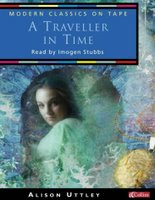
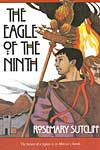
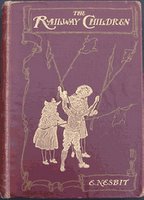


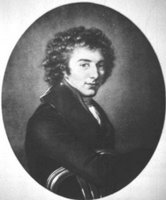
 As the trap is about to make a turn at a crossroads, a woman approaches. Yes! It’s the heroine, wearing a horrible assortment of drab clothes (she’s in mourning and has dyed something black). As she lifts her skirt to avoid a puddle she reveals a grubby petticoat and a gray woollen stocking collapsing over the top of one boot. So she’s much the same color as the landscape, except for her hair, chopped short, and red gold.
As the trap is about to make a turn at a crossroads, a woman approaches. Yes! It’s the heroine, wearing a horrible assortment of drab clothes (she’s in mourning and has dyed something black). As she lifts her skirt to avoid a puddle she reveals a grubby petticoat and a gray woollen stocking collapsing over the top of one boot. So she’s much the same color as the landscape, except for her hair, chopped short, and red gold. 